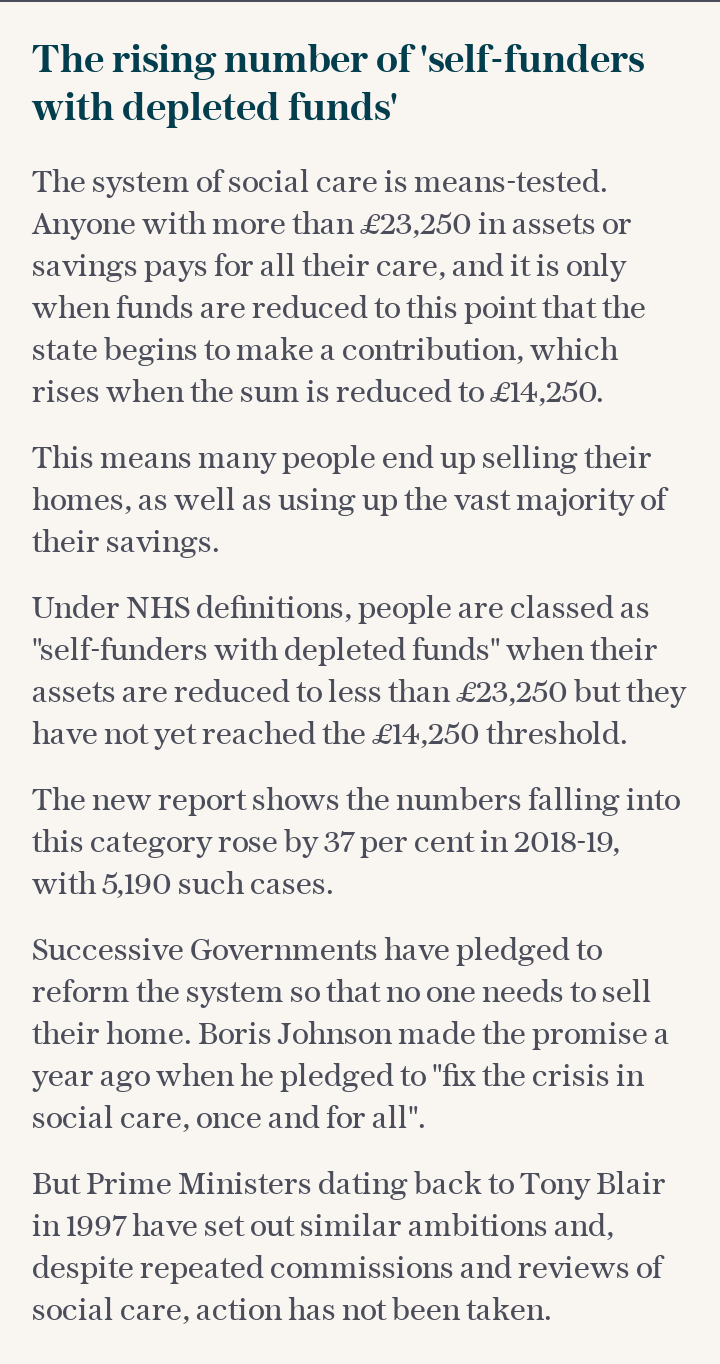Care home costs should be capped at £46,000, says Commons committee


Care home costs should be capped at £46,000 in an overhaul of the social care system, which is currently "unfair, confusing and frightening", the Commons health select committee has said.
MPs called for £7 billion a year to be pumped into the sector immediately to stop the market from collapsing.
The committee, chaired by the former Health Secretary Jeremy Hunt, urged ministers to take action on a crisis in social care. Successive Governments, including the current one, have promised reforms but failed to introduce them.
Their report calls for the introduction of a lifetime cap to protect against "catastrophic care costs", with some families now spending as much as £500,000 to fund care home places.
Under the current system, all assets and savings can be used to pay for care until a threshold of £23,250 is reached. One in 10 over-65s will pay more than £100,000 for their care, the report warns.

The committee urged the Government to implement proposals made by economist Sir Andrew Dilnot in 2011 and limit lifetime costs to £46,000. Such changes would cost £3.1 billion by 2023-24, they argue.
MPs also suggested the Government should consider making all "personal care" free, as is the case in Scotland. They said it was unjust that a person with cancer would receive free care while someone suffering from dementia would be expected to pay for the help they needed.
They said an "urgent and sustained" cash injection was needed to prevent the market collapsing, with the crisis further exposed by the Covid pandemic.
Mr Hunt said: "The pandemic has held up in lights the brilliant and brave work done by the social care workforce – but the real thank you they want is not a weekly clap but a long-term plan for the crisis in their sector." He said the sector needed a 10-year plan and fundamental reform.
The charity Age UK said the number of elderly people not getting the care and support they need has risen by a fifth in two years, with 1.4 million people denied help.
The wife of one patient who was diagnosed with dementia in his 60s and found himself without financial support, told MPs: "It is like picking up a random card from a pack and saying: 'Oh, you've got this particular one. Tough. That's the disease the NHS isn't going to pay for.'"
Fiona Carragher, the director of research at Alzheimer's Society, said: "With two thirds of the astronomical cost of dementia currently being paid by people with dementia and their families, we welcome the support of MPs for an immediate significant cash injection.
"Thousands of people with dementia have died, coronavirus has utterly exposed that social care is on its knees and we cannot claim to be a civilised society if we do not put social care at last on equal footing with the NHS.
"These immediate steps could help pull the system back from the brink, but the Government must also put forward long-term social care reform proposals, making care free at the point of use, on the same basis as health care, or they fail the many families bereft by grief."

 Yahoo News
Yahoo News 
